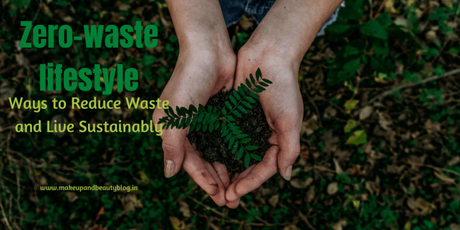
Zero-waste lifestyle is becoming more popular as people around the world become increasingly concerned about environmental sustainability. The idea behind a zero-waste lifestyle is to reduce waste by recycling, composting, and reducing plastic use. This approach to living can significantly reduce the amount of trash produced by an individual, thereby reducing their carbon footprint and protecting the environment.
In this article, we will discuss some ways to reduce waste and live a more sustainable lifestyle. We will cover topics such as recycling, composting, and reducing plastic use, and provide tips for individuals looking to embrace a zero-waste lifestyle.
Recycling
Recycling is an essential part of a zero-waste lifestyle. It involves reusing materials that would otherwise end up in landfills, thereby reducing waste and conserving resources. Recycling can also save energy and reduce greenhouse gas emissions associated with manufacturing new products.
Here are some tips for recycling effectively:
- Know what you can recycle: Before you start recycling, find out what materials your local recycling program accepts. This will vary depending on your location, but most recycling programs accept items such as paper, cardboard, glass, aluminum cans, and plastic bottles.
- Rinse and clean containers: Rinse out any containers before recycling them to remove any leftover food or liquid. This will prevent contamination and make the recycling process more effective.
- Break down cardboard boxes: Flatten cardboard boxes before recycling them to save space and make it easier for the recycling center to process them.
- Recycle electronics: Electronics can contain hazardous materials that can harm the environment if not disposed of properly. Many electronics stores offer recycling programs for items such as cell phones, batteries, and computers.
Composting is the process of decomposing organic material such as food scraps, leaves, and grass clippings to create nutrient-rich soil. This is an effective way to reduce waste and create a sustainable source of fertilizer for your garden.
Here are some tips for composting effectively:
- Choose a compost bin: There are many different types of compost bins available, including worm bins, tumblers, and stationary bins. Choose the one that best fits your needs and space.
- Know what to compost: You can compost many different types of organic material, including fruit and vegetable scraps, eggshells, coffee grounds, and yard waste such as leaves and grass clippings. Avoid composting meat, dairy, and oily foods, as these can attract pests and slow down the composting process.
- Maintain the right balance: To create good compost, you need to maintain the right balance of carbon and nitrogen. Carbon-rich materials include leaves, straw, and cardboard, while nitrogen-rich materials include food scraps and grass clippings.
- Stir and turn the compost: To speed up the composting process, stir and turn the compost regularly to ensure that it gets enough oxygen.
Plastic waste is a significant environmental problem, and reducing plastic use is an essential part of a zero-waste lifestyle. Here are some tips for reducing plastic use:
- Bring your reusable bags: Bring your reusable shopping bags to the grocery store or farmers' market to avoid using plastic bags.
- Use reusable containers: Bring your reusable containers to the deli counter or restaurant to avoid using disposable containers.
- Buy in bulk: Buy in bulk to reduce packaging waste. Bring your reusable containers to the store and fill them up with items such as grains, nuts, and spices.
- Avoid single-use plastics: Avoid using single-use plastics such as straws, utensils, and water bottles. Instead, bring your reusable items or use alternatives such as paper straws and bamboo utensils.
Conclusion
A zero-waste lifestyle is an effective way to reduce waste, conserve resources, and protect the environment.
Image source: Unsplash'This post is part of #BlogchatterA2Z challenge'. Also A part of Blogchatter's CauseAChatter
